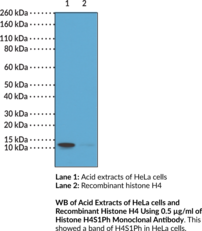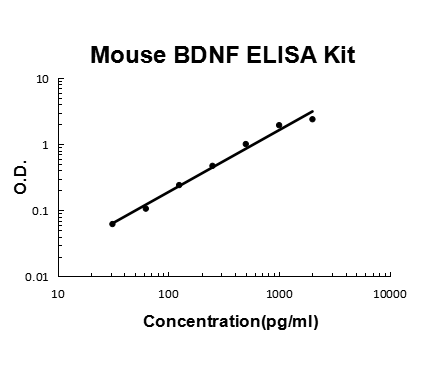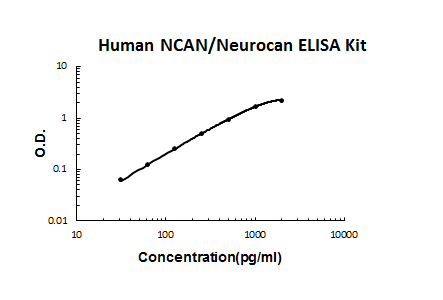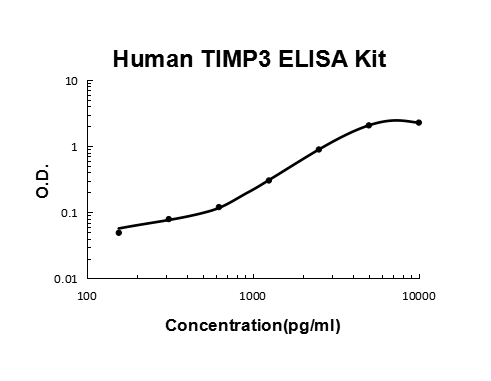Description
Immunogen: Peptide corresponding to H4S1Ph • Host: Rabbit • Species Reactivity: (+) Vertebrates • Cross Reactivity: (+) H4S1Ph, H4S1Ph/R3Me1, H4S1Ph/R3Me2; (-) Unmodified histone H4, H2AS1Ph • Applications: ELISA, ICC, multiplex-based assays, WB
Synonyms: H4pS1|H4pSer1|Histone H4 (Phospho-Ser1)|Phospho-Histone H4 Serine 10|Phosphorylated Histone H4 Serine 1
Immunogen: Peptide corresponding to H4S1Ph
Formulation: 100 µg of protein A-affinity purified monoclonal antibody
Isotype: IgG
Applications: ELISA, ICC, multiplex-based assays, WB
Origin:
Stability: 365 days
Application|ELISA||Application|Immunocytochemistry||Application|Multiplex||Application|Western Blot||Product Type|Antibodies|Monoclonal Antibodies||Research Area|Cell Biology|Cell Cycle||Research Area|Cell Biology|Endomembrane System & Vesicular Trafficking|Autophagy||Research Area|Endocrinology & Metabolism|Reproductive Biology||Research Area|Epigenetics, Transcription, & Translation|Histones/Histone Peptides|Phosphorylated||Research Area|Epigenetics, Transcription, & Translation|Writers|Phosphorylation




